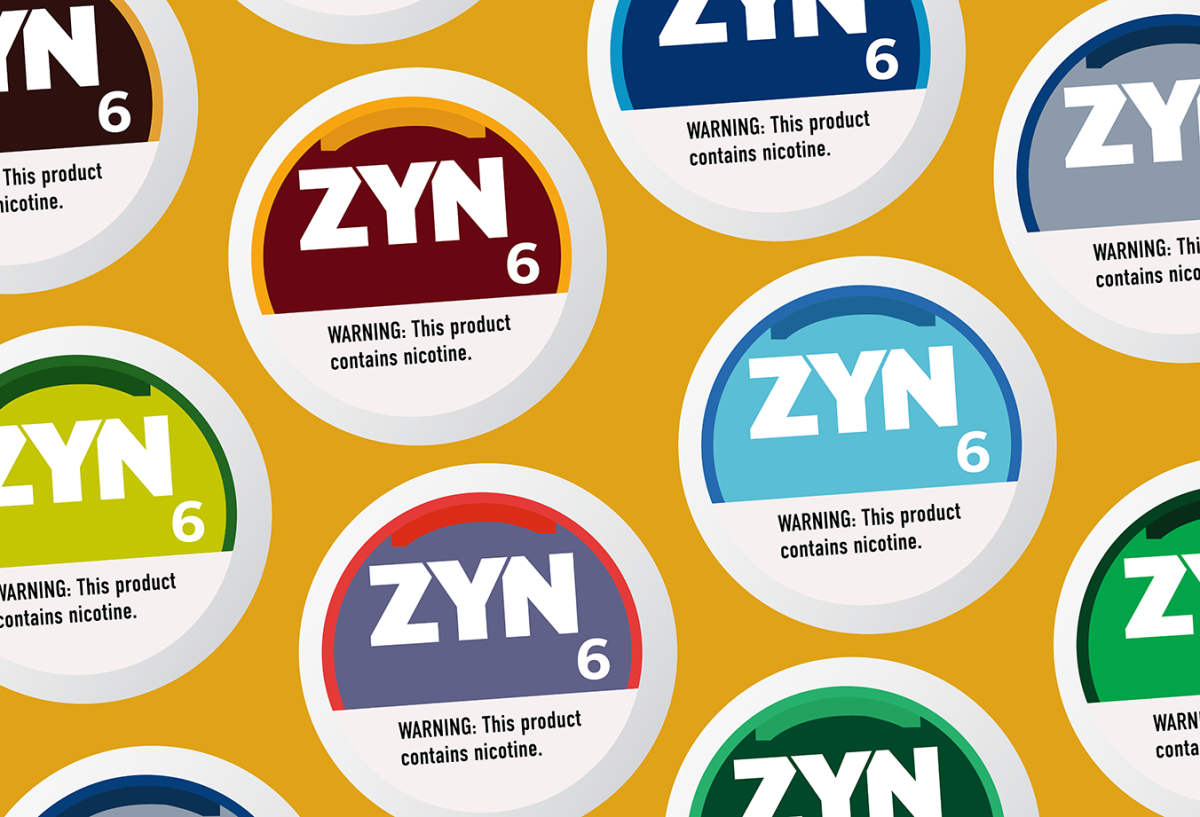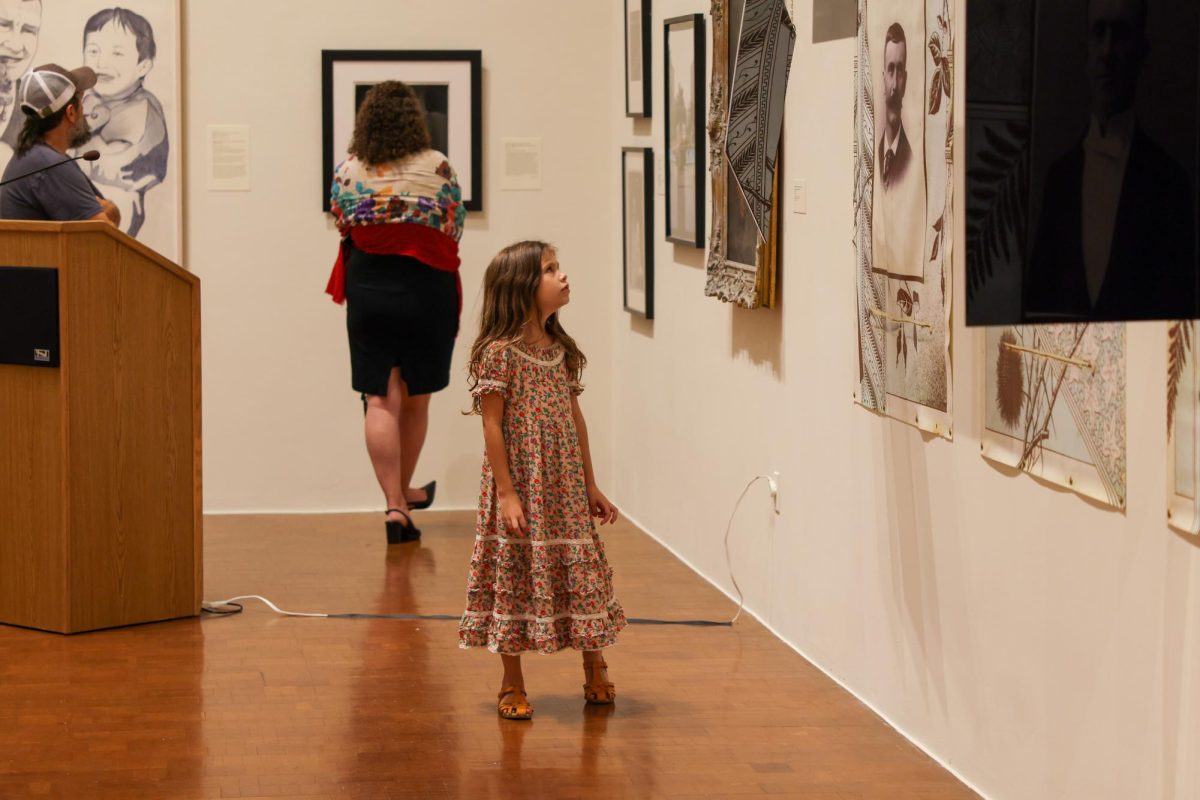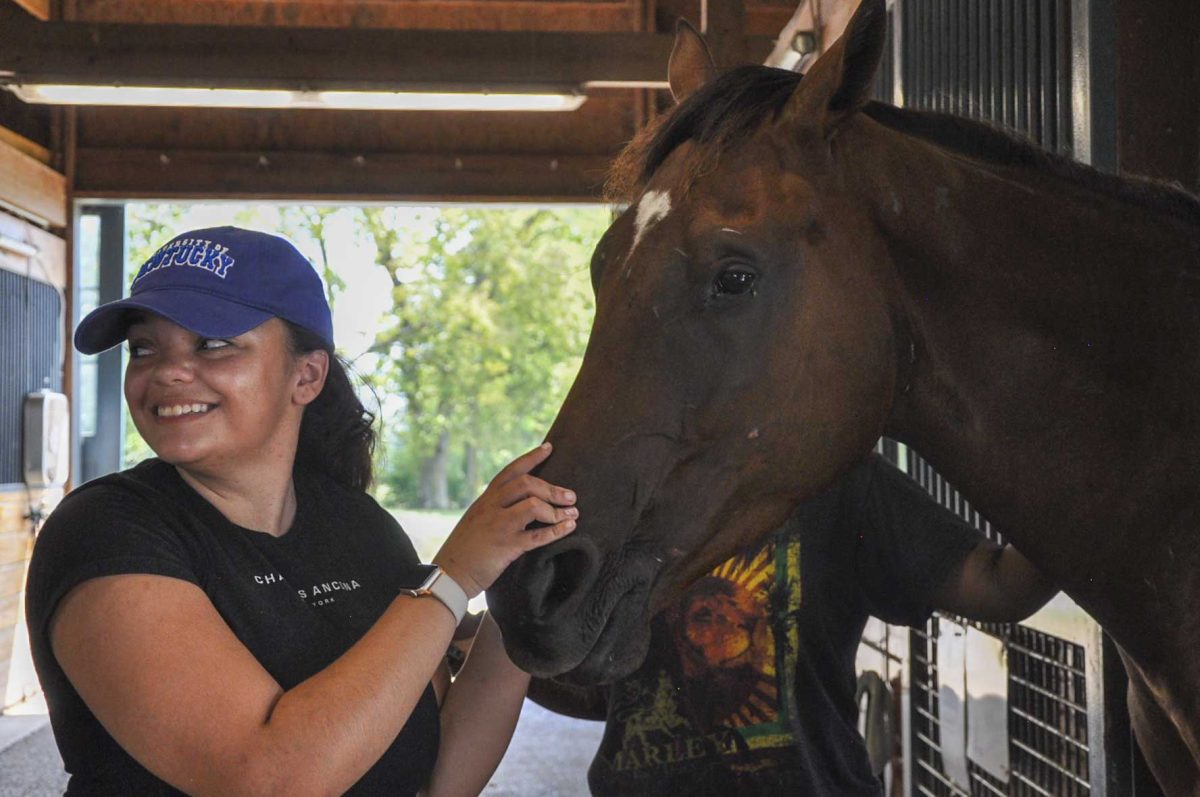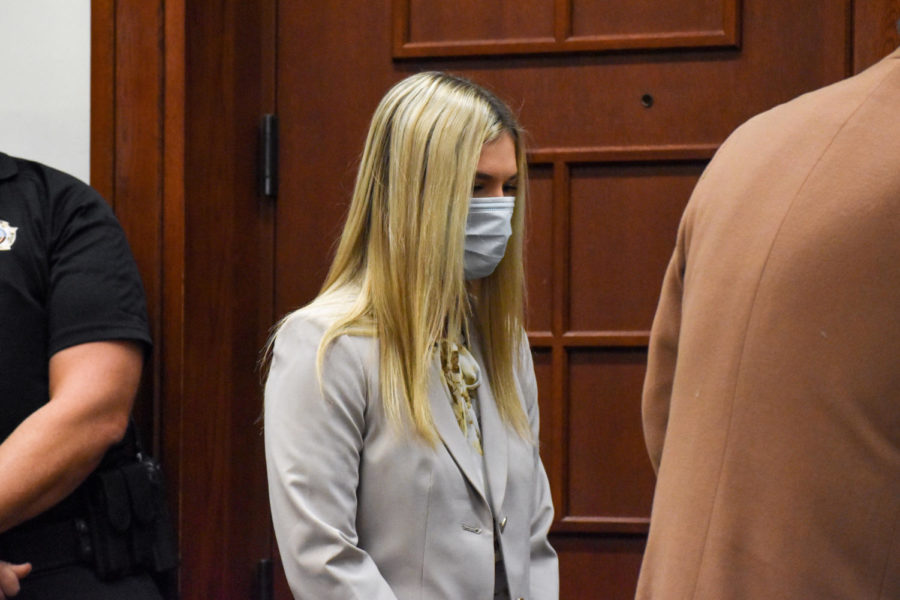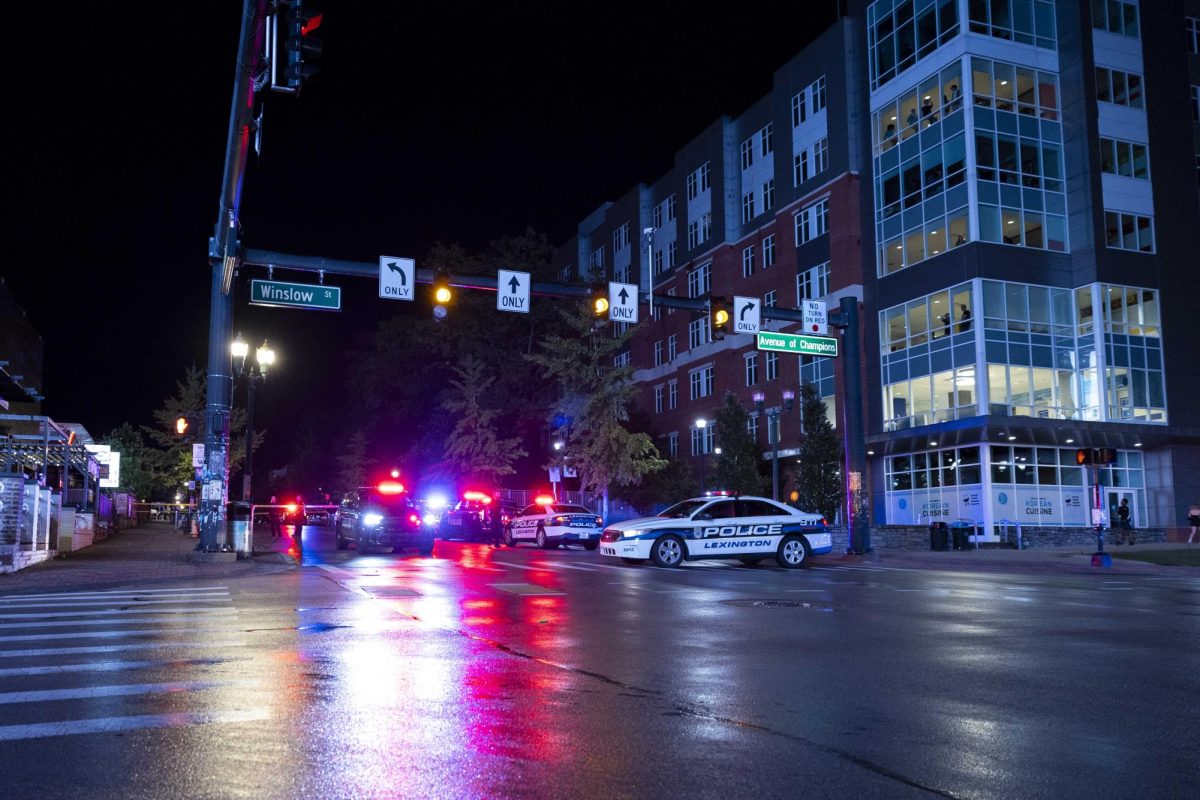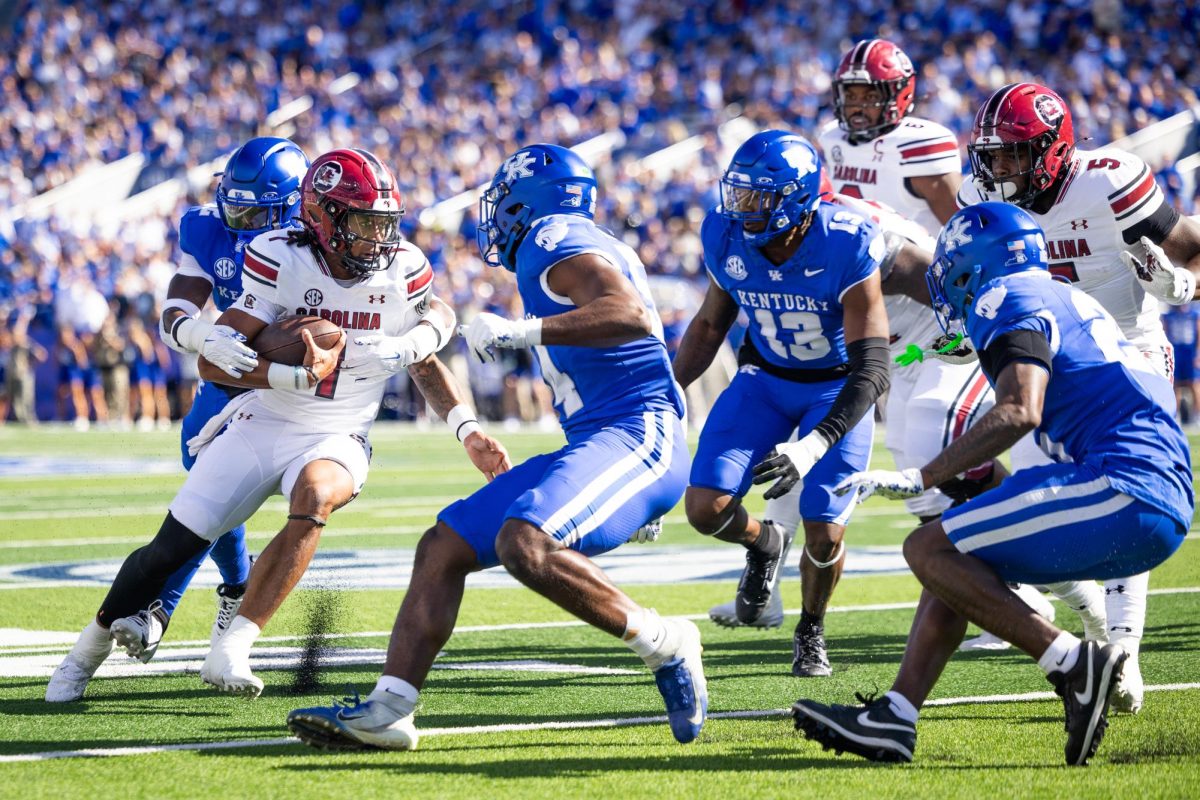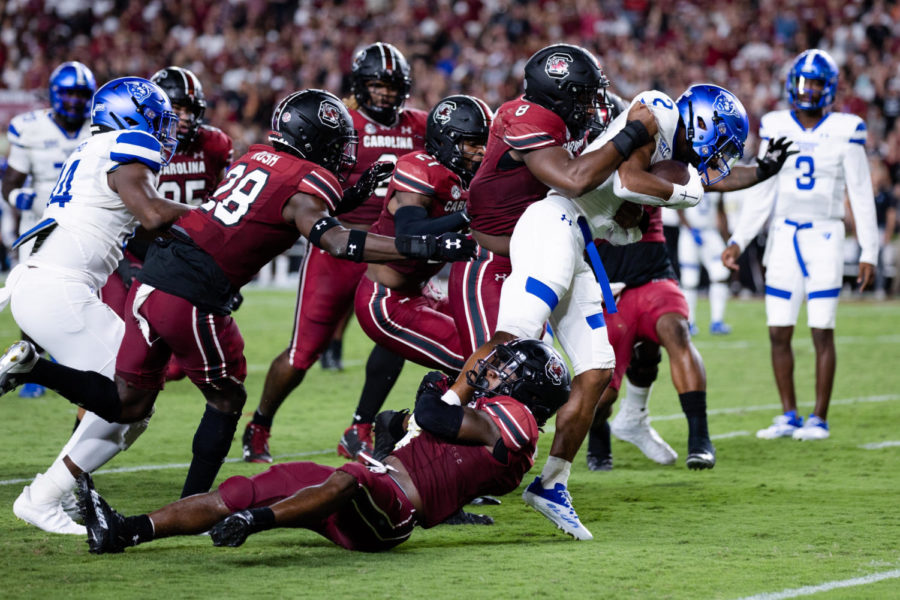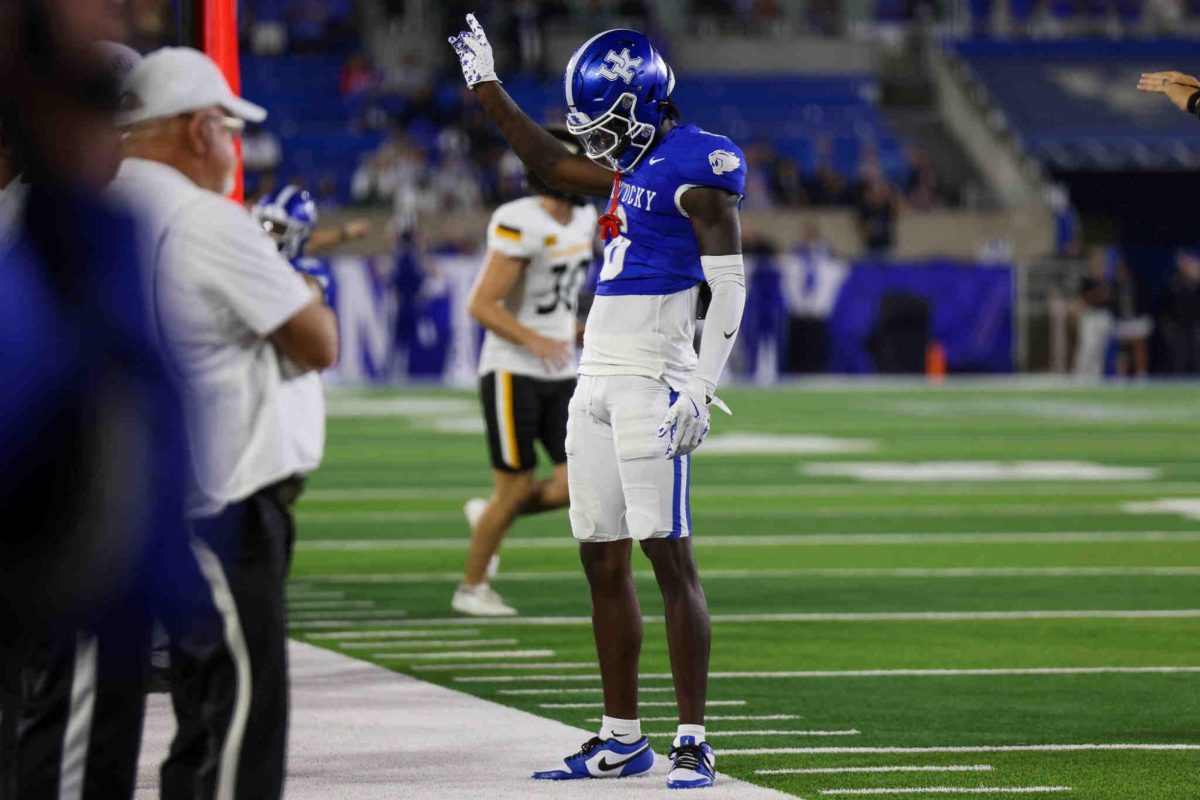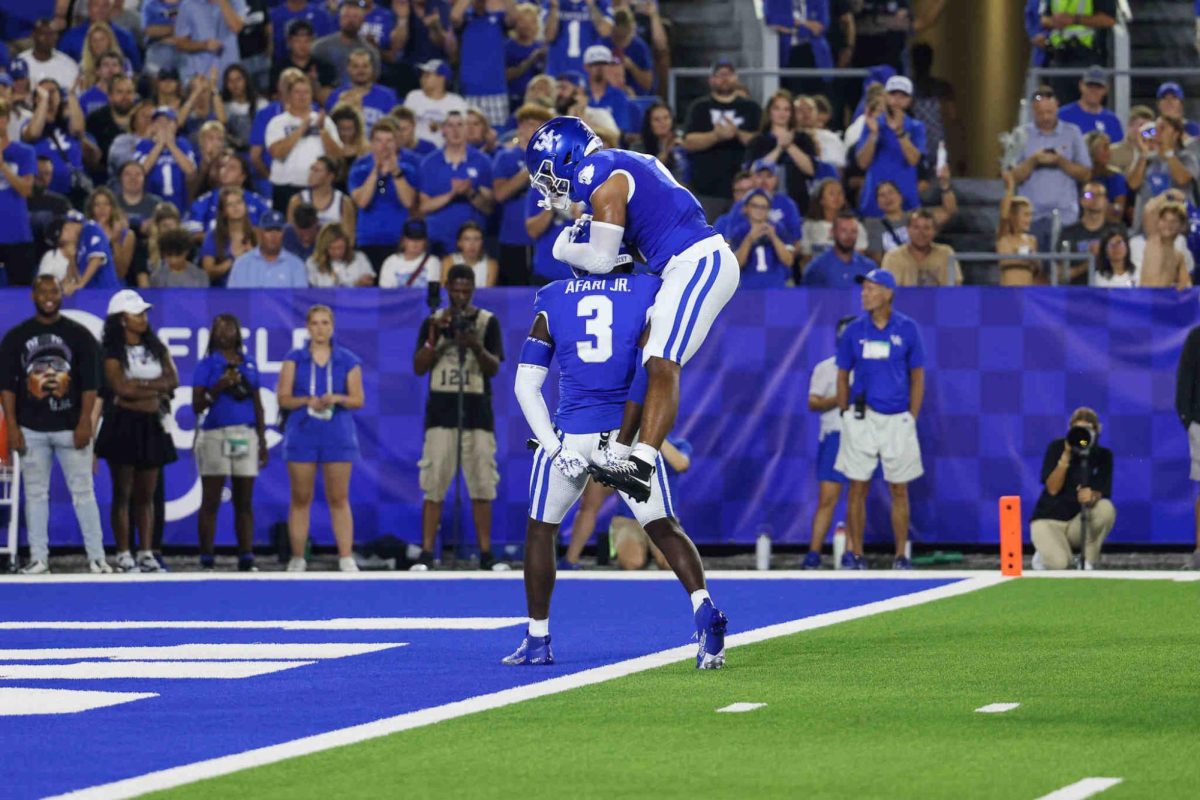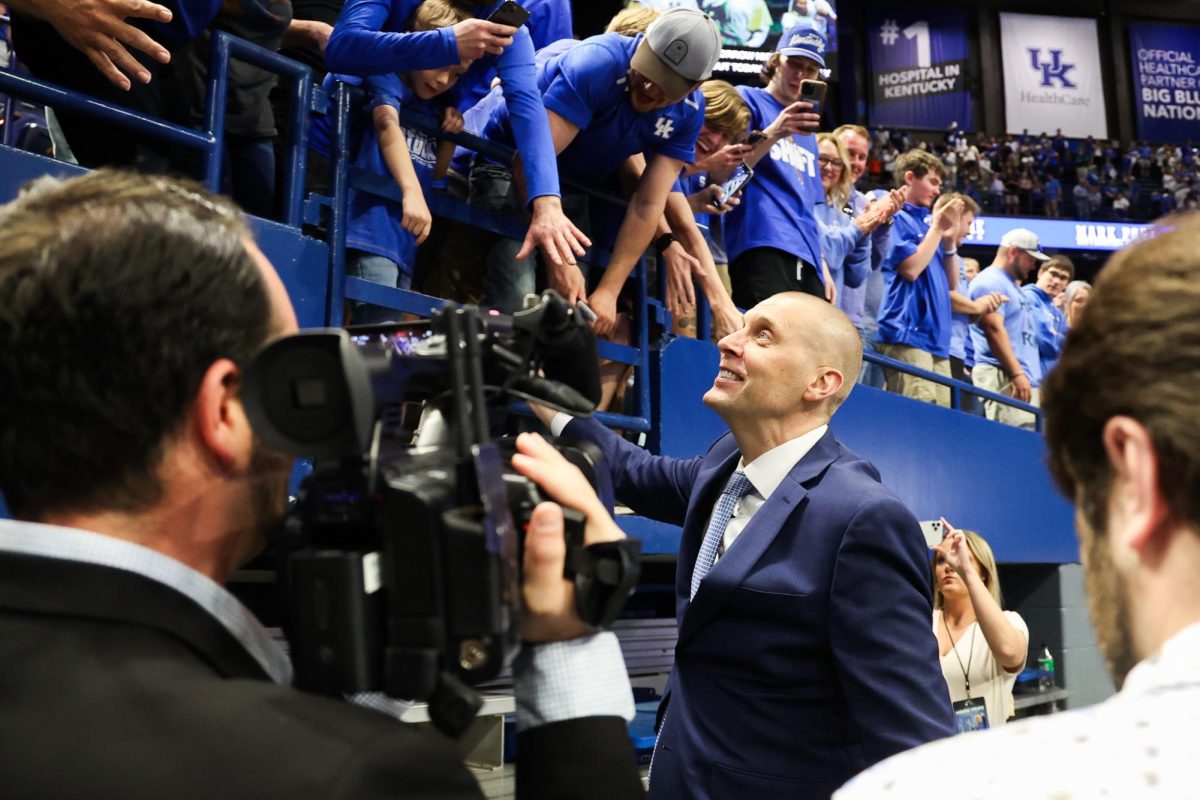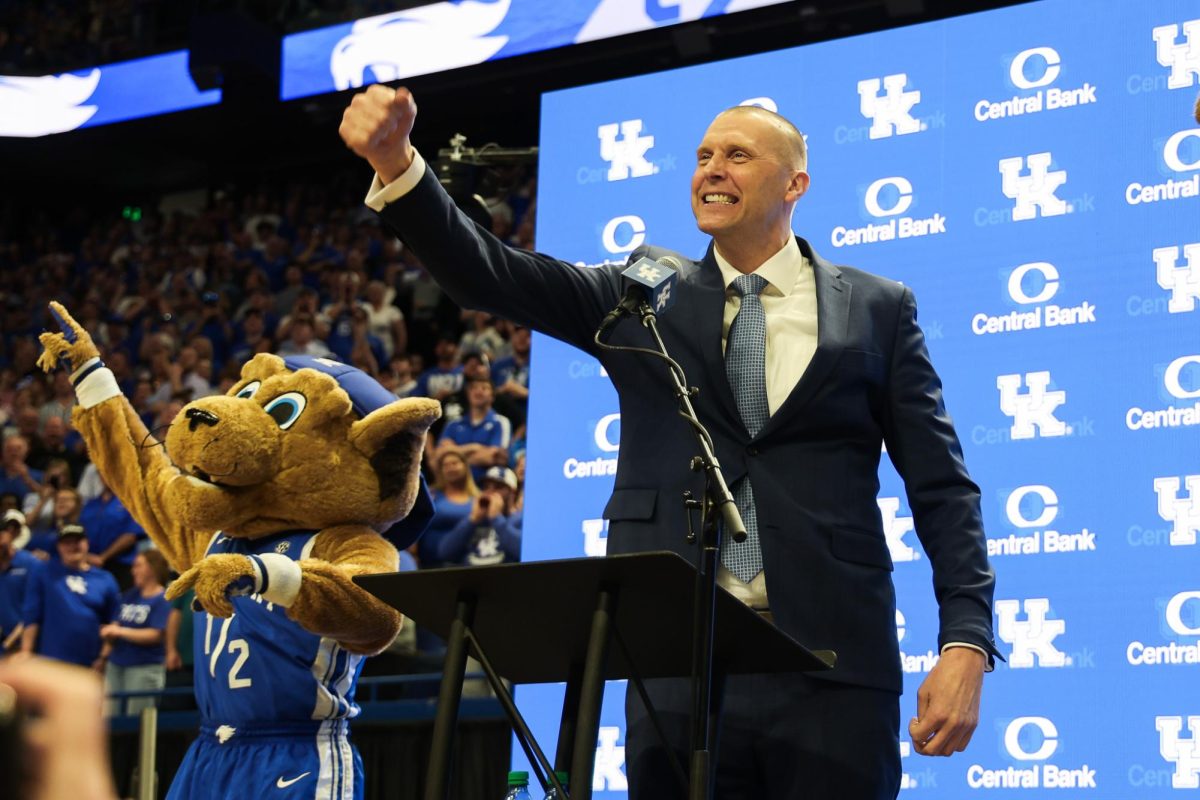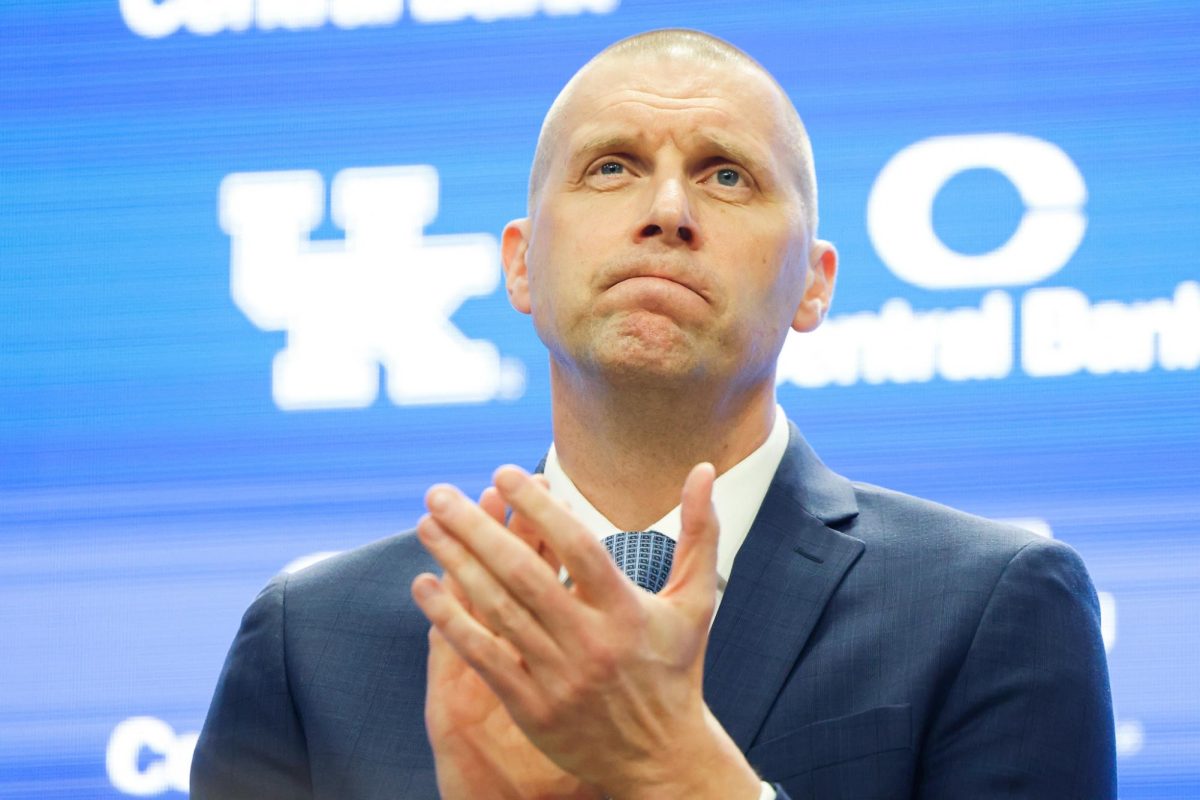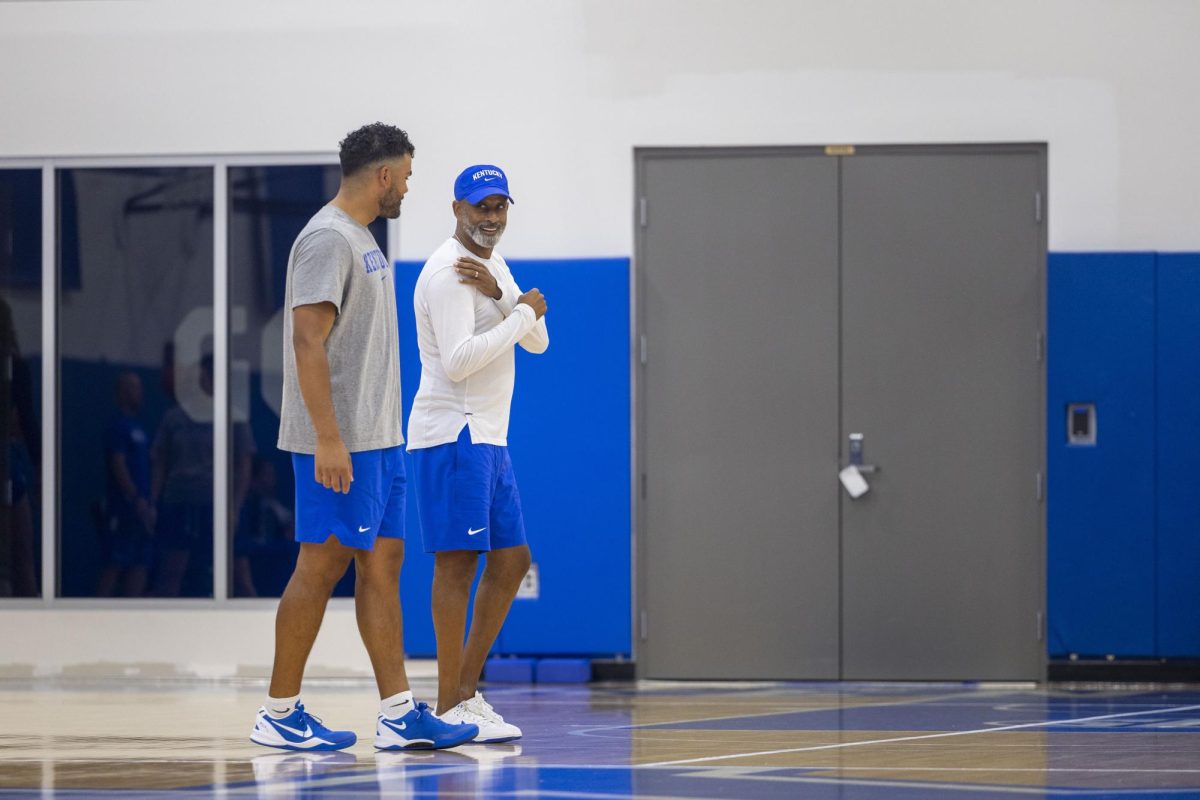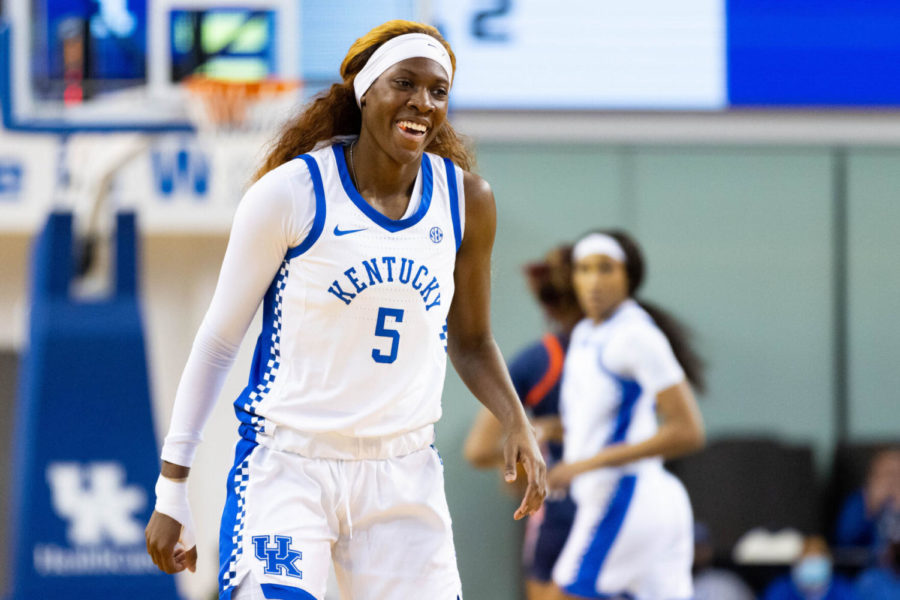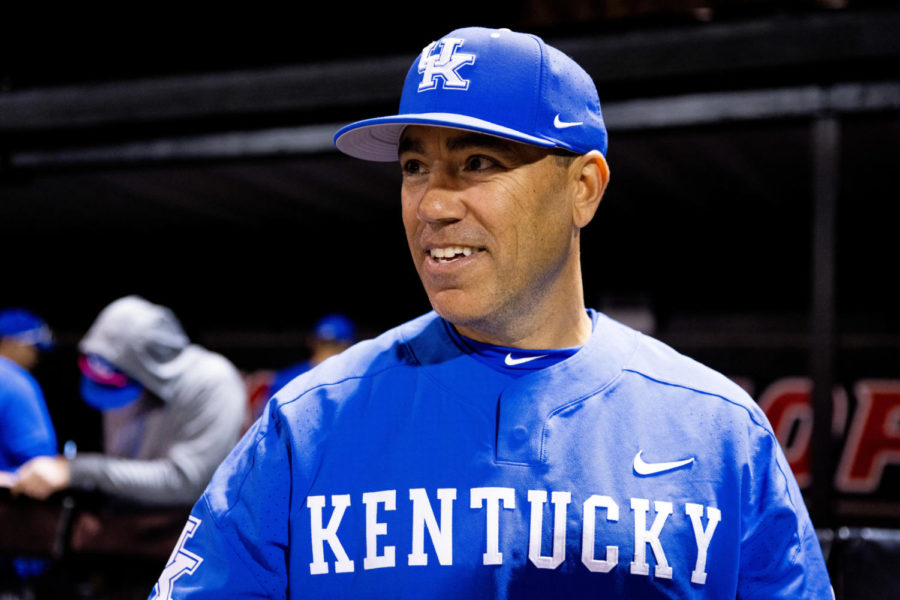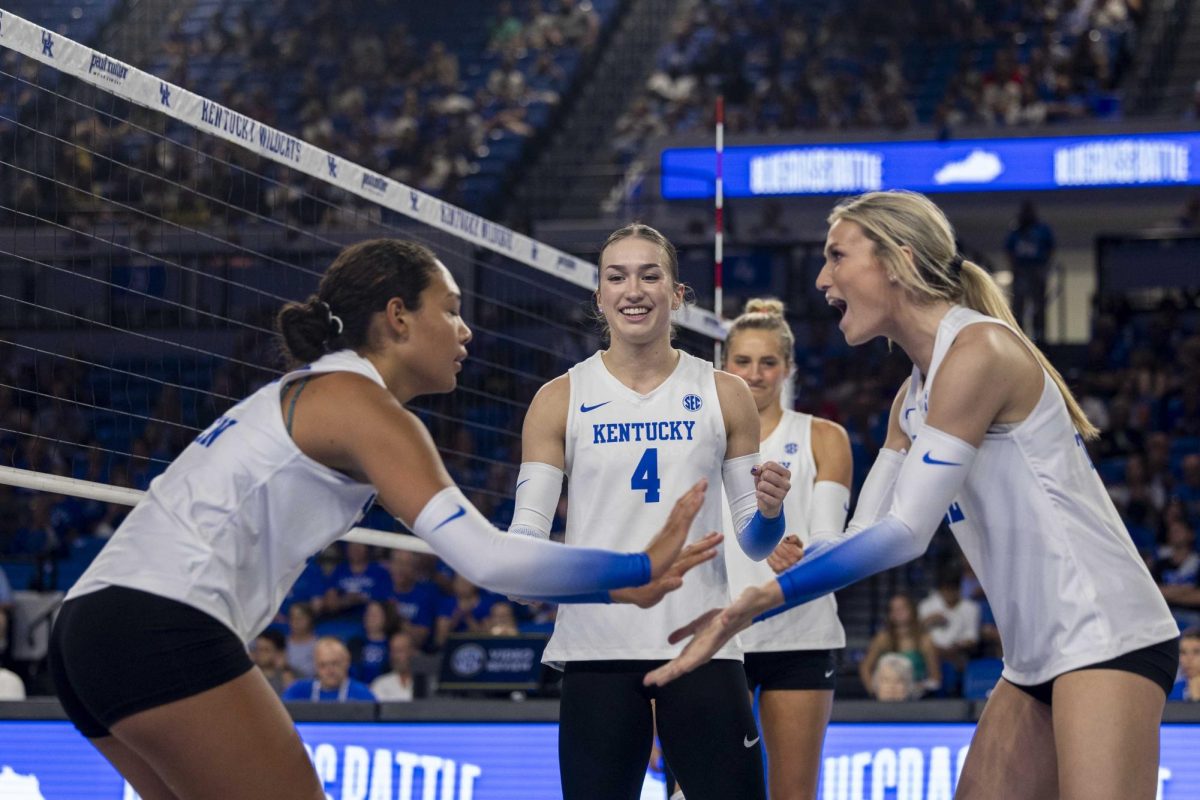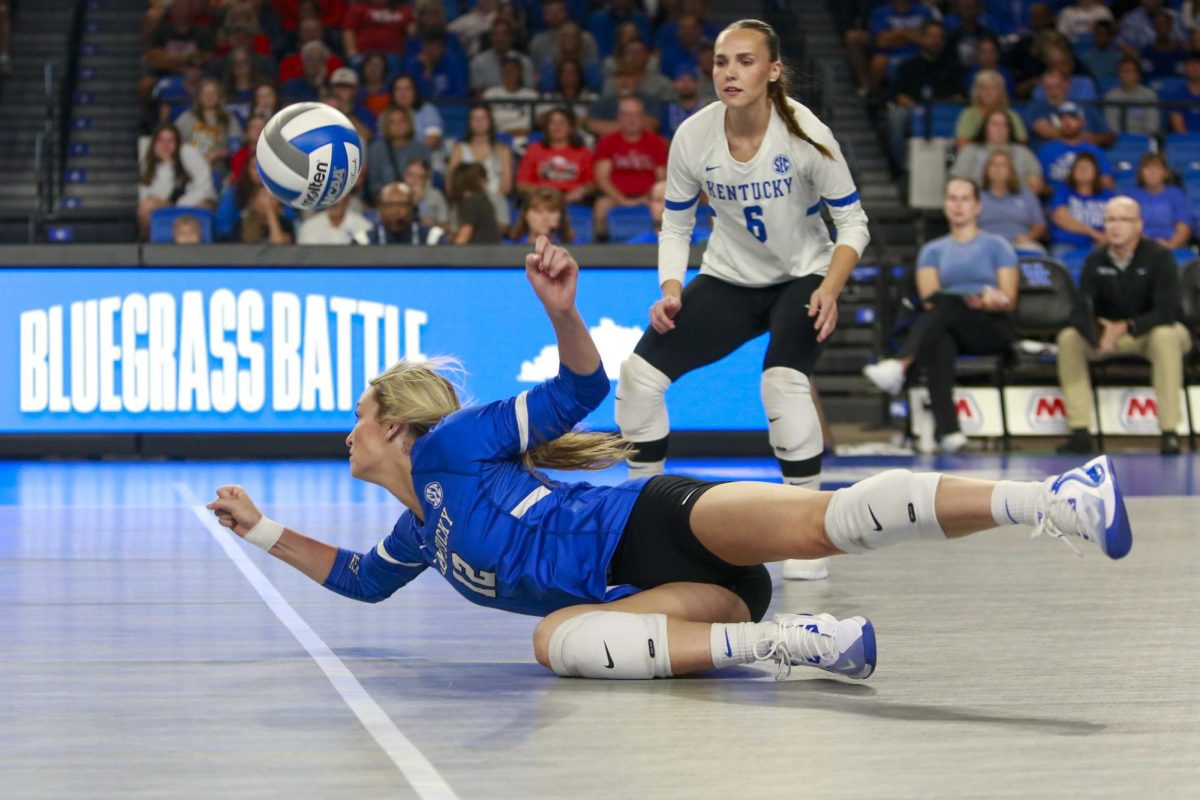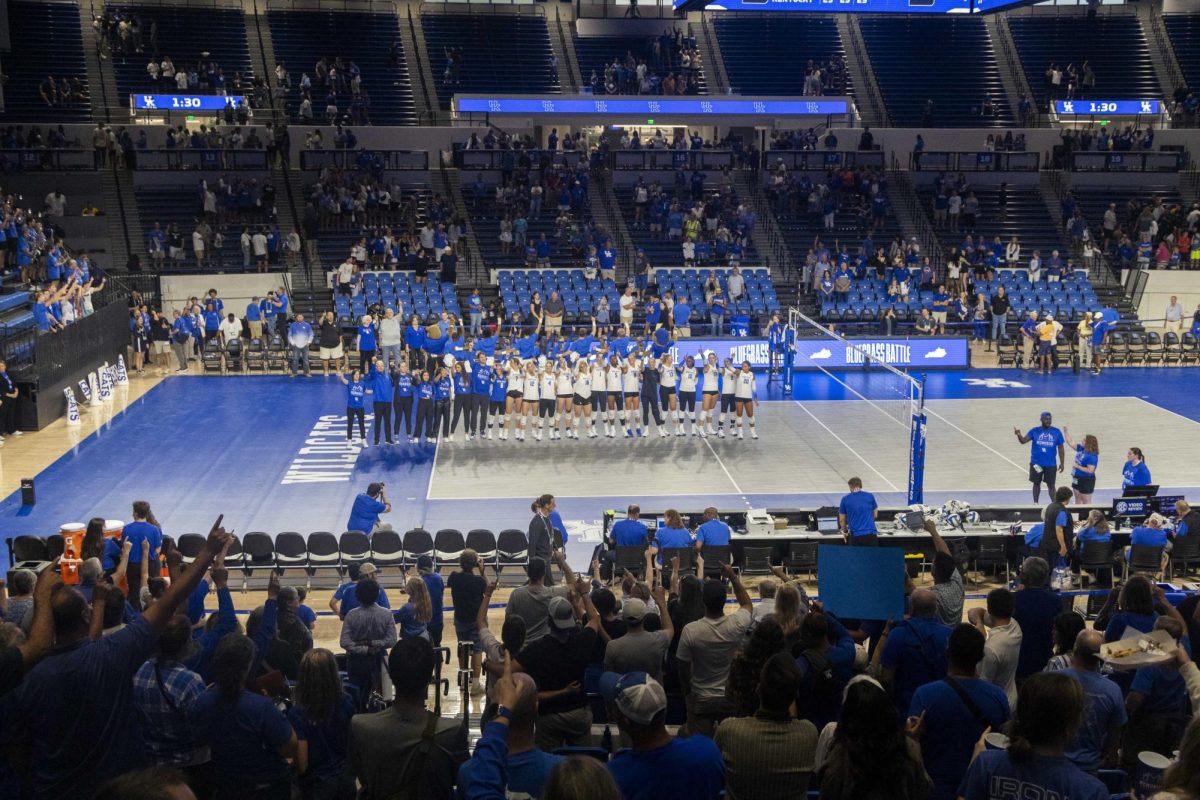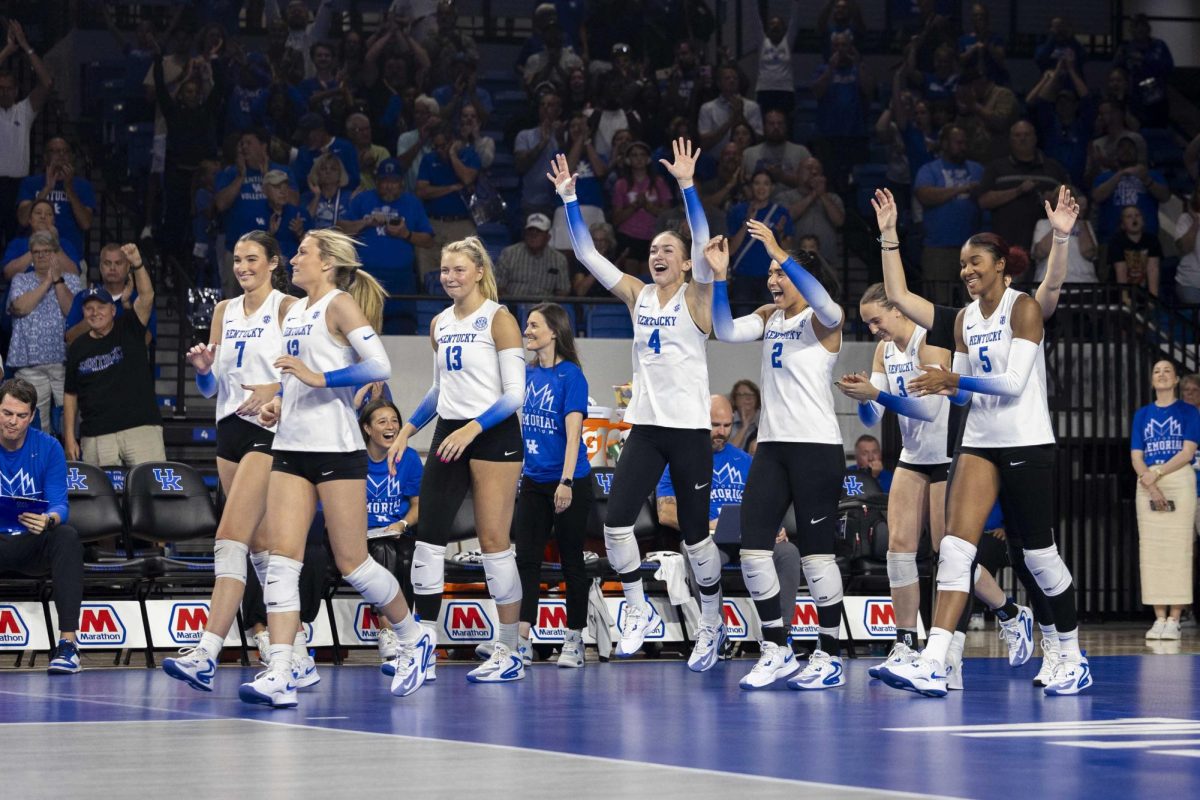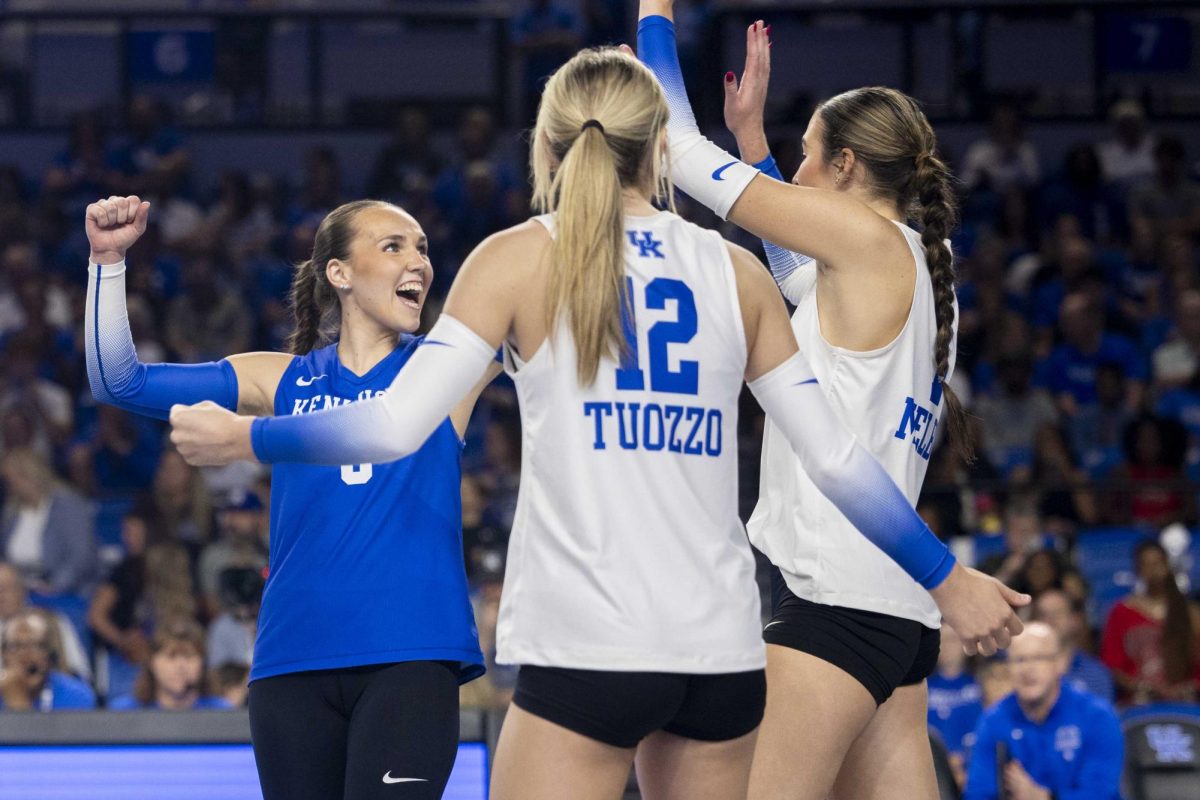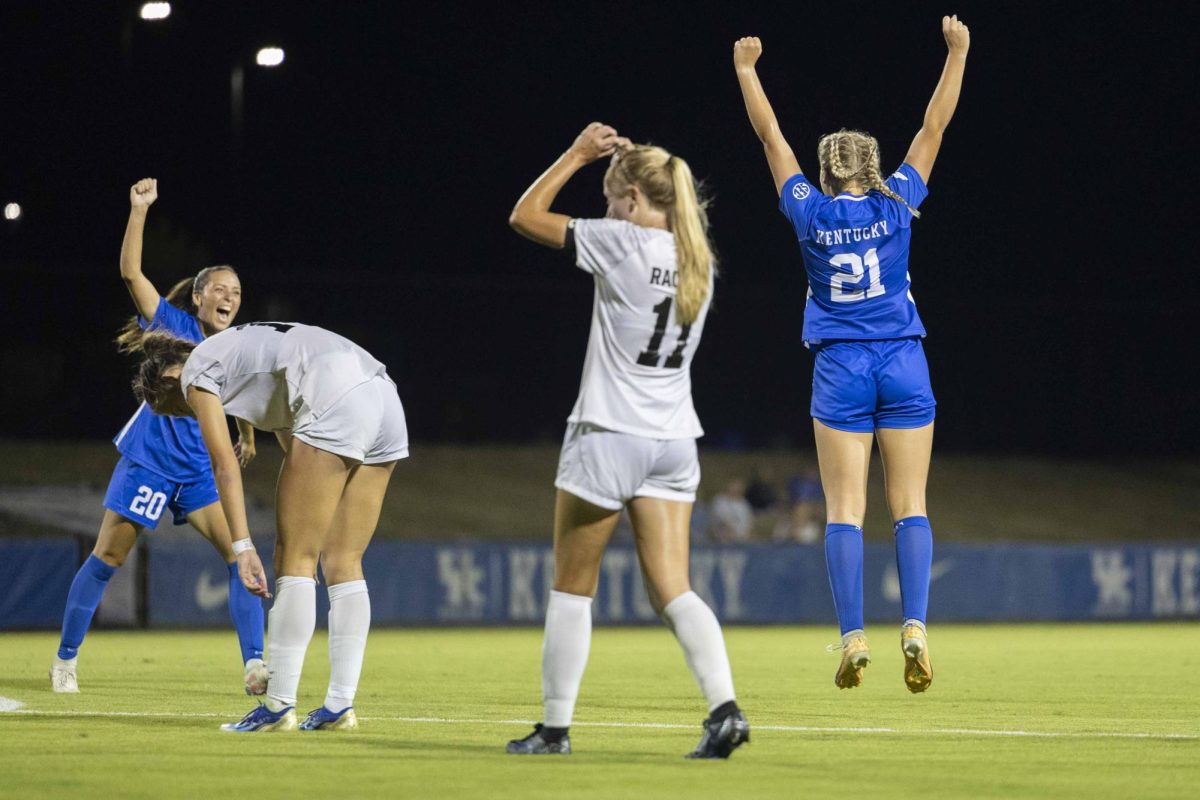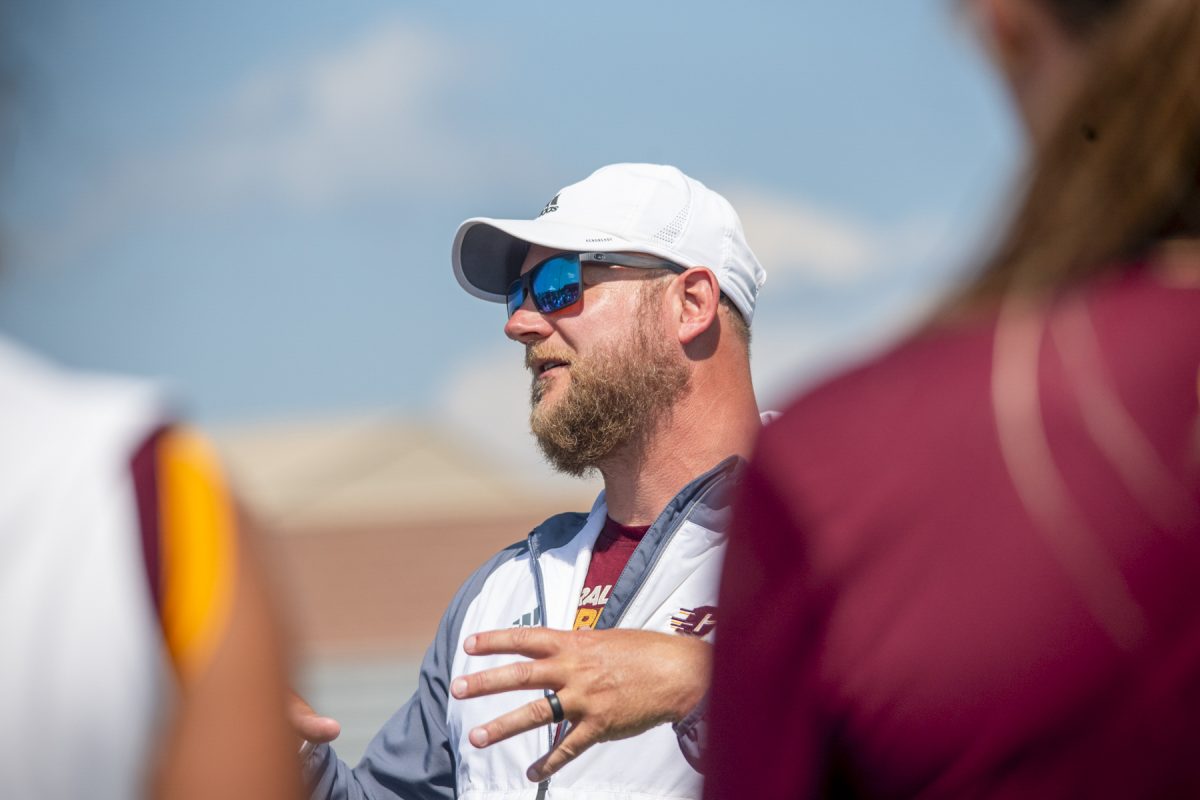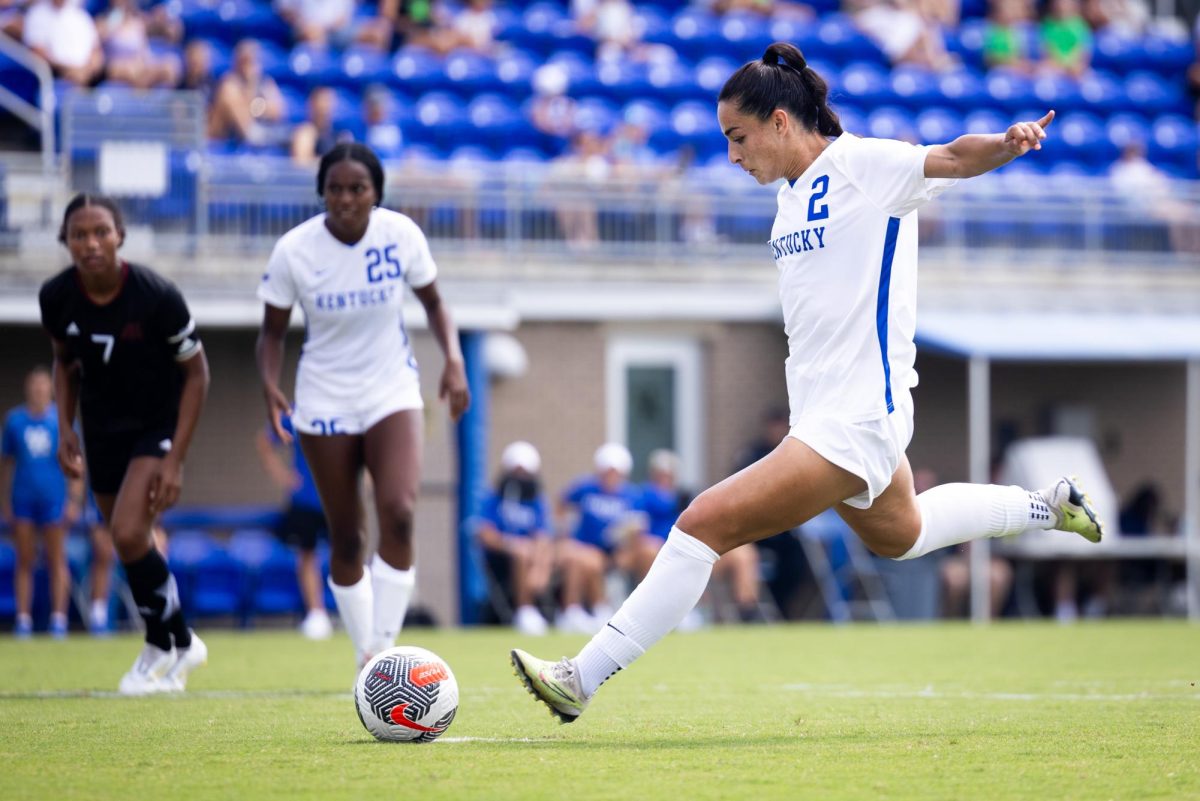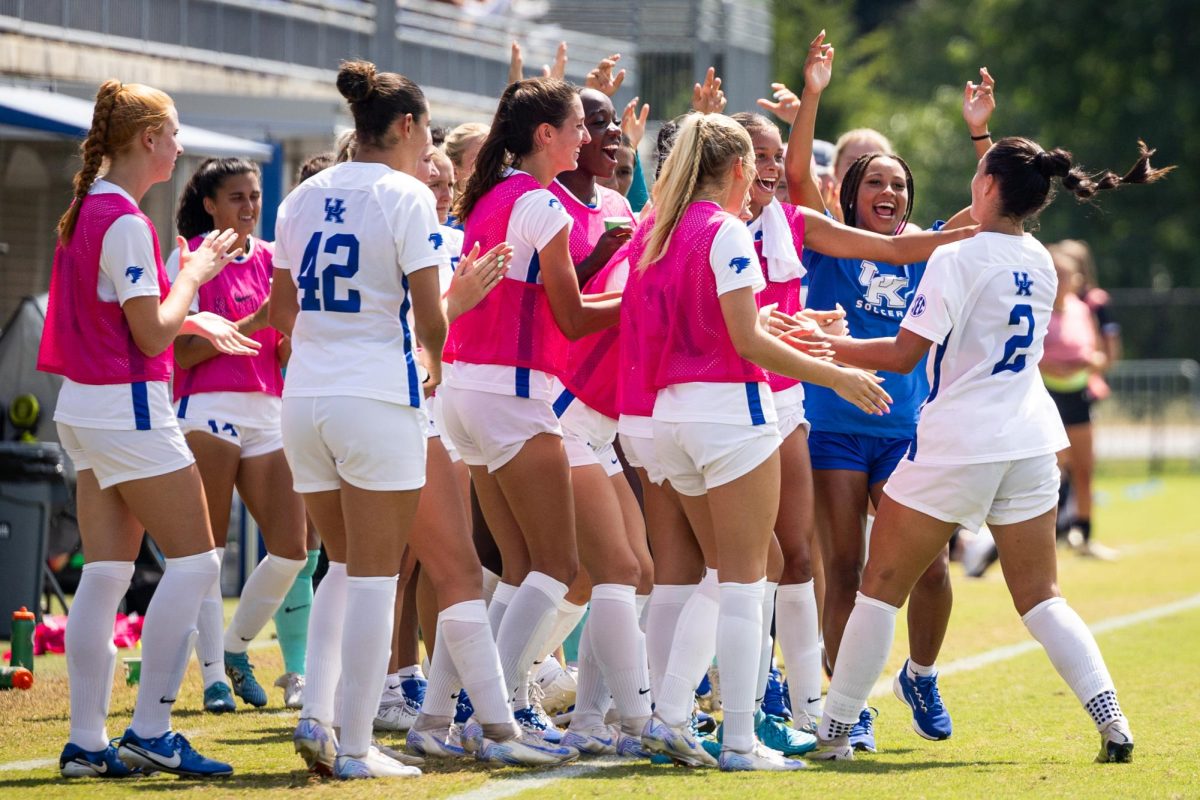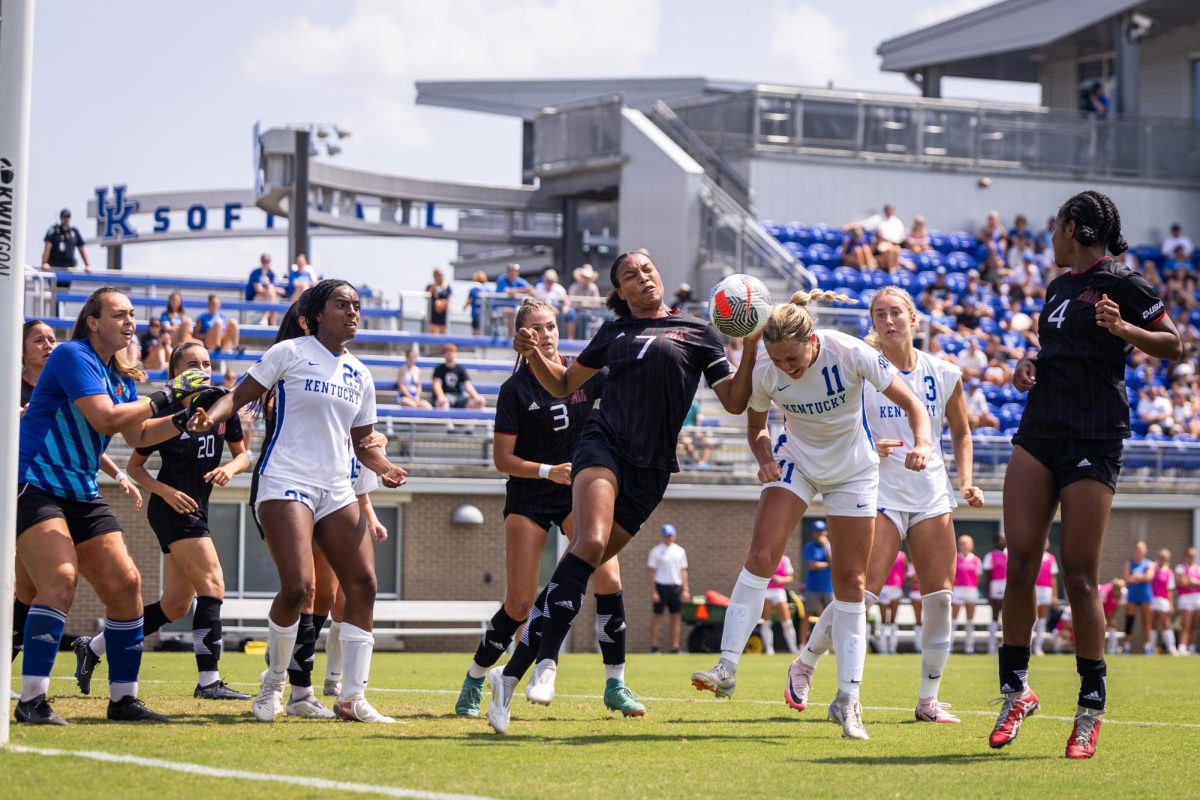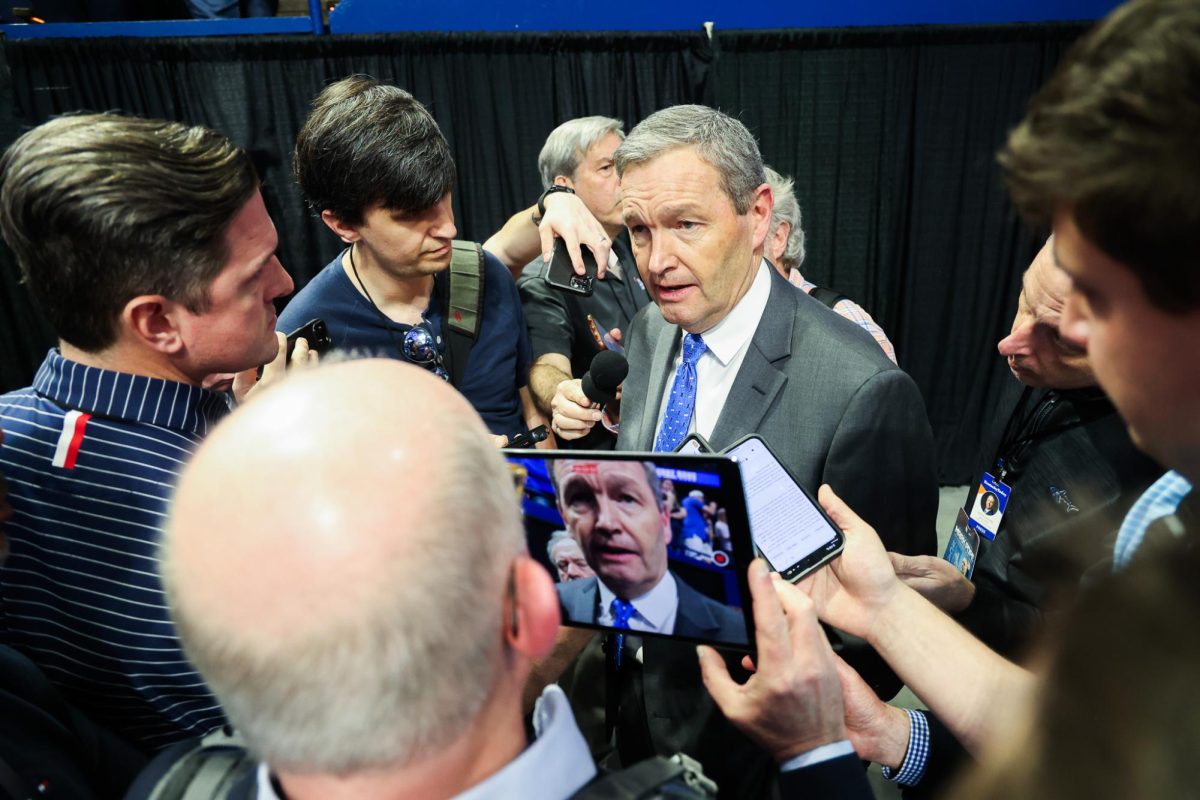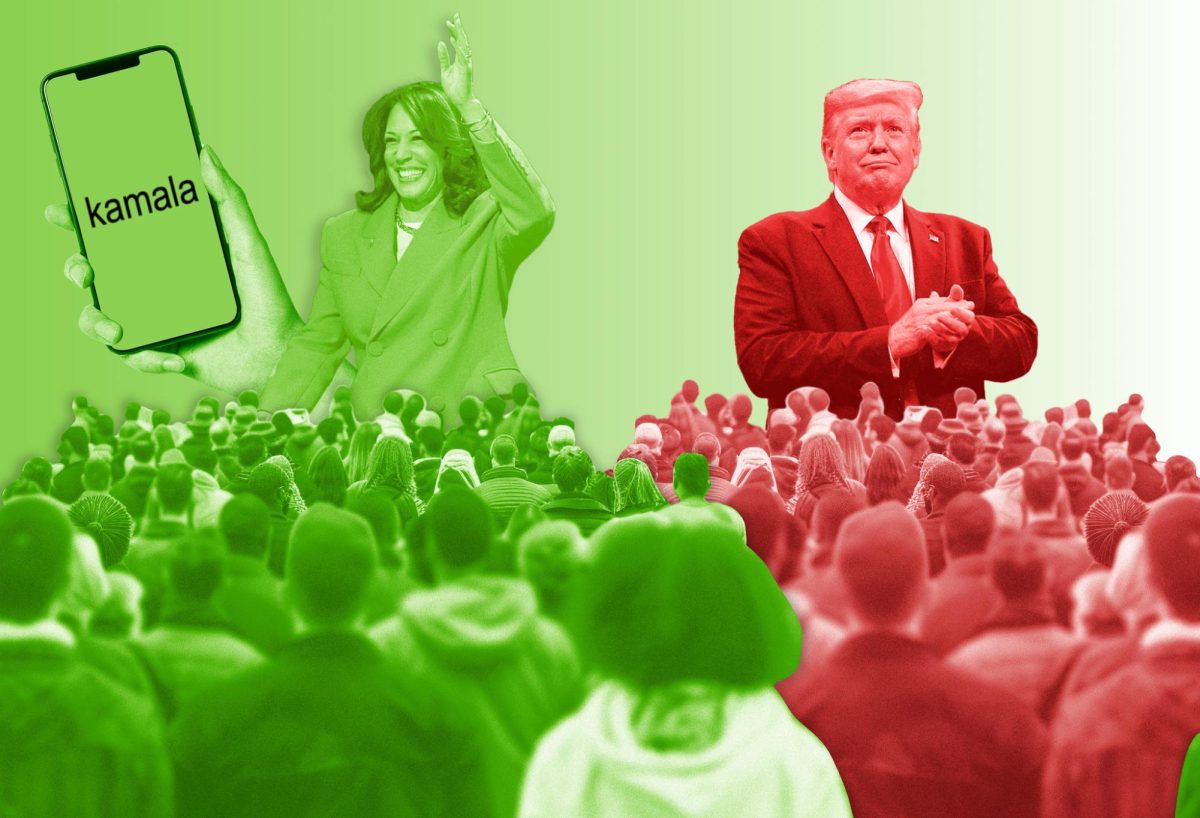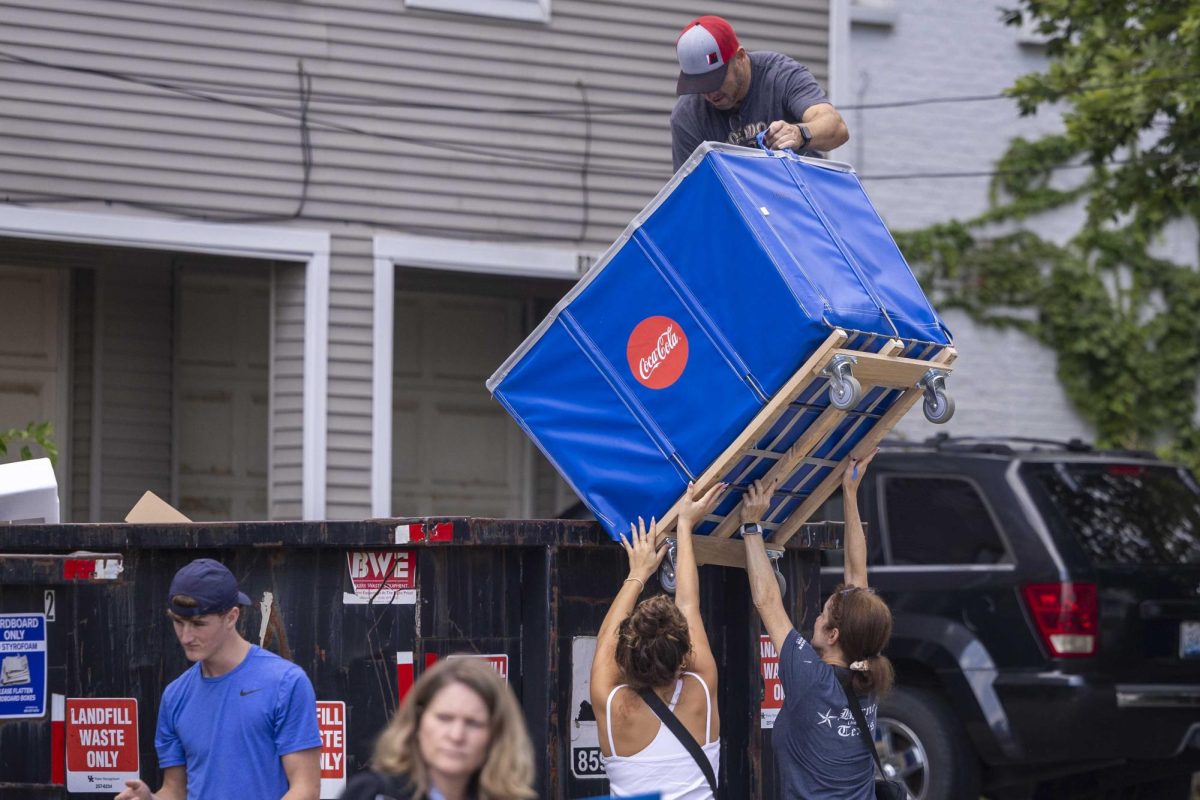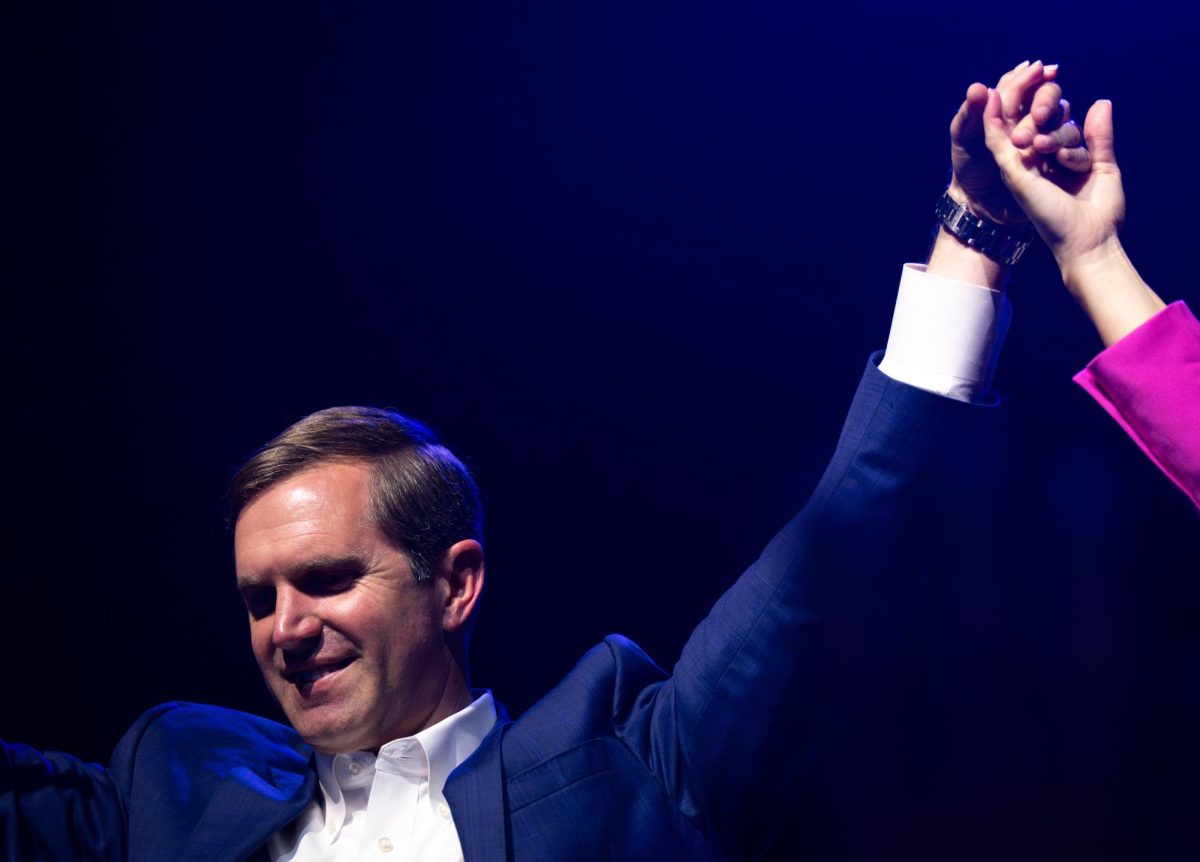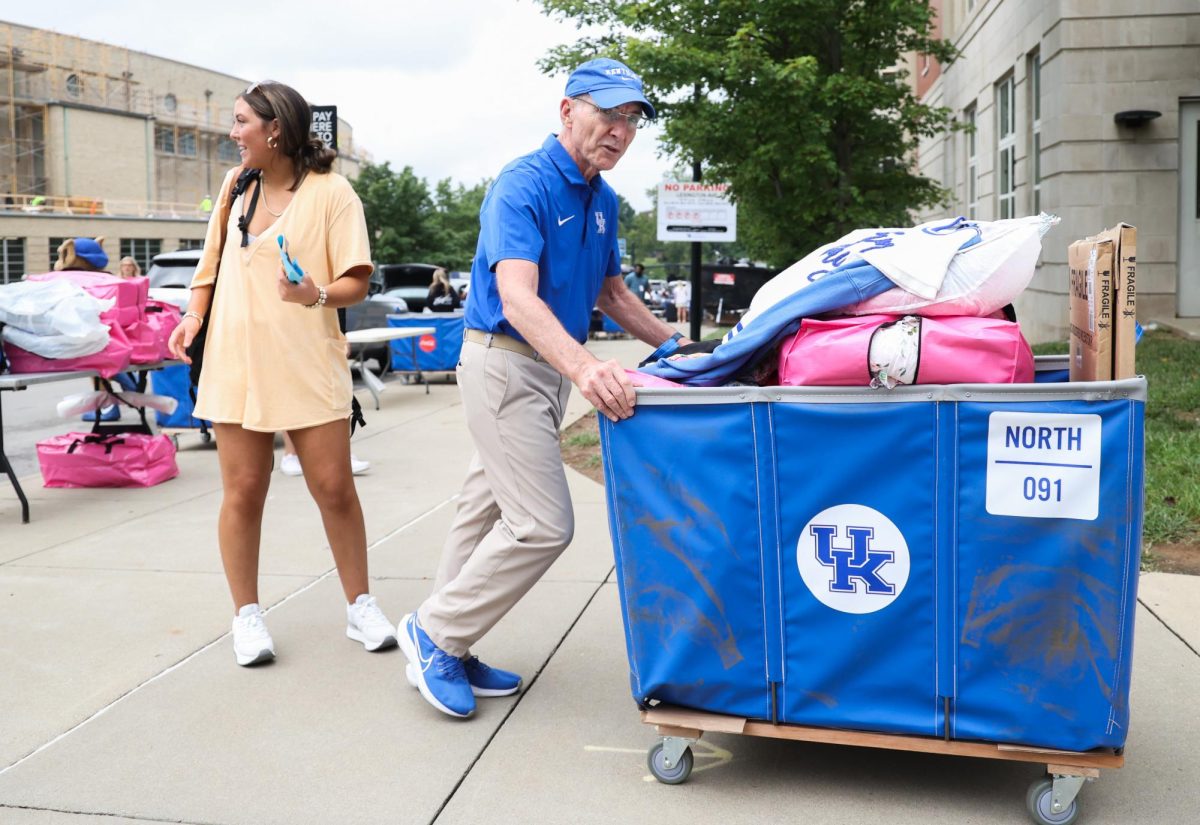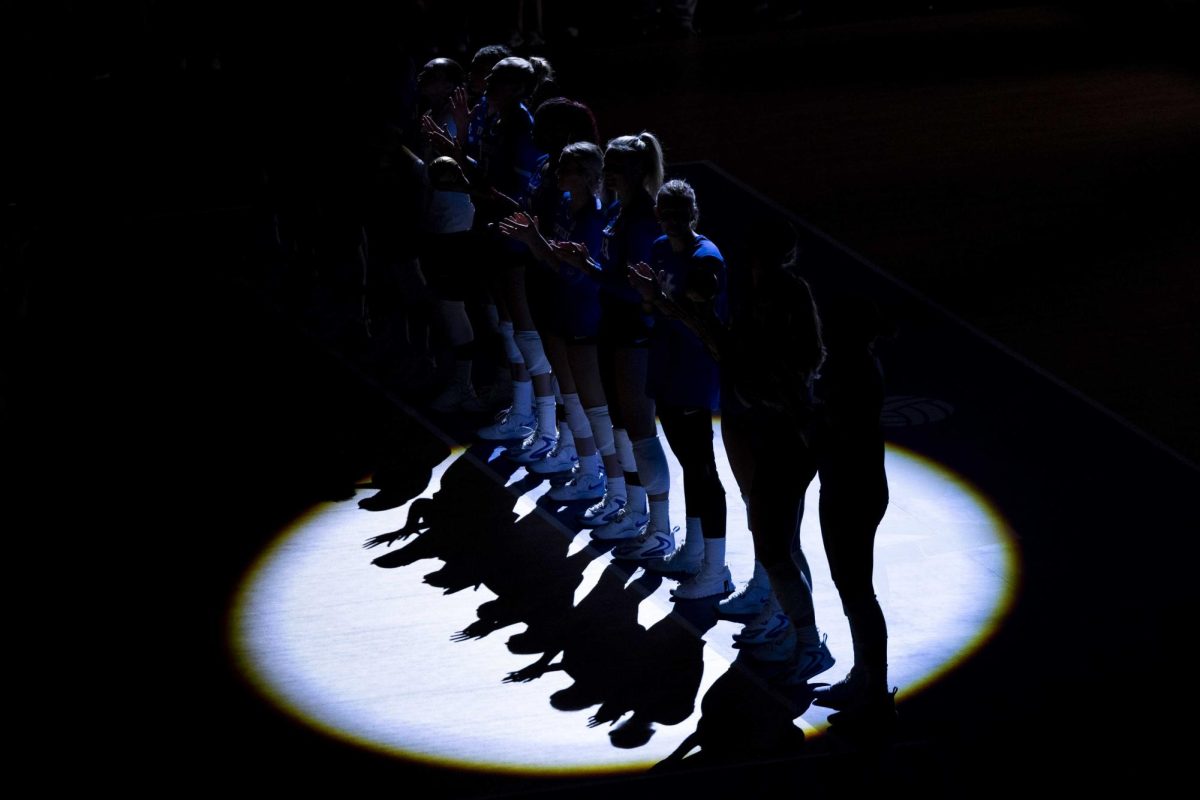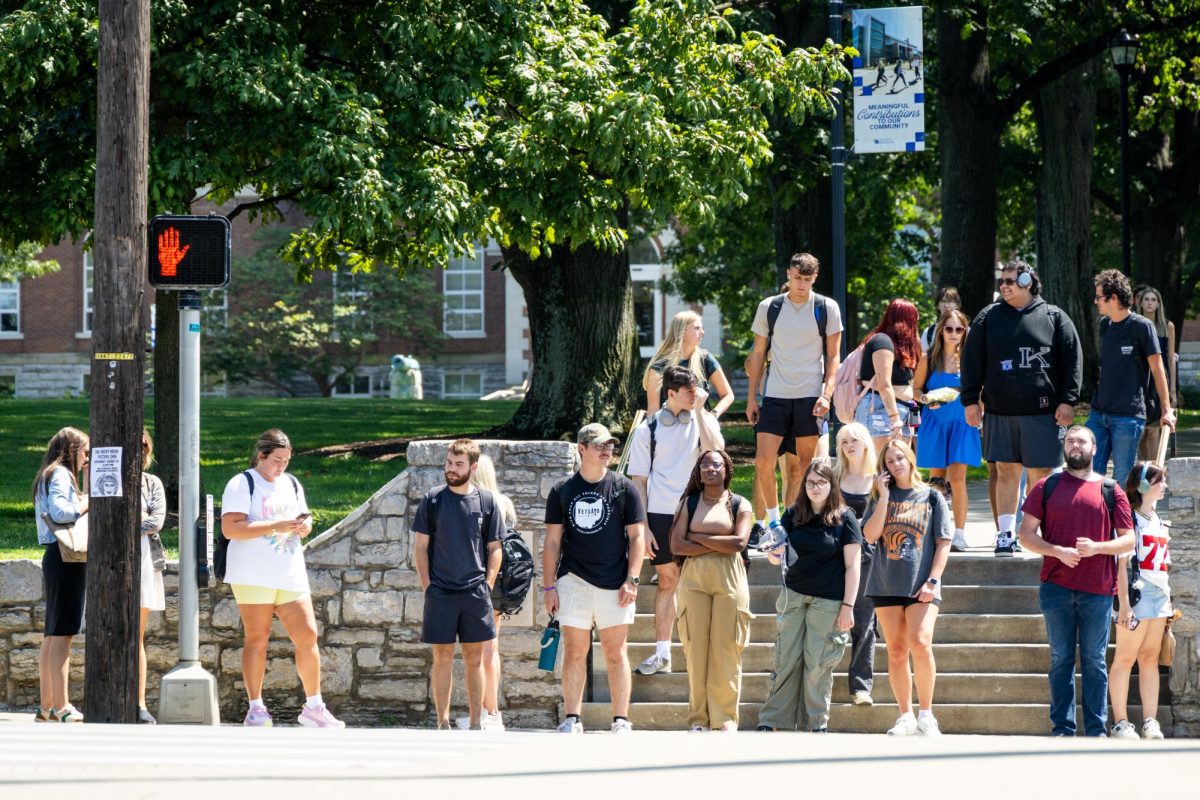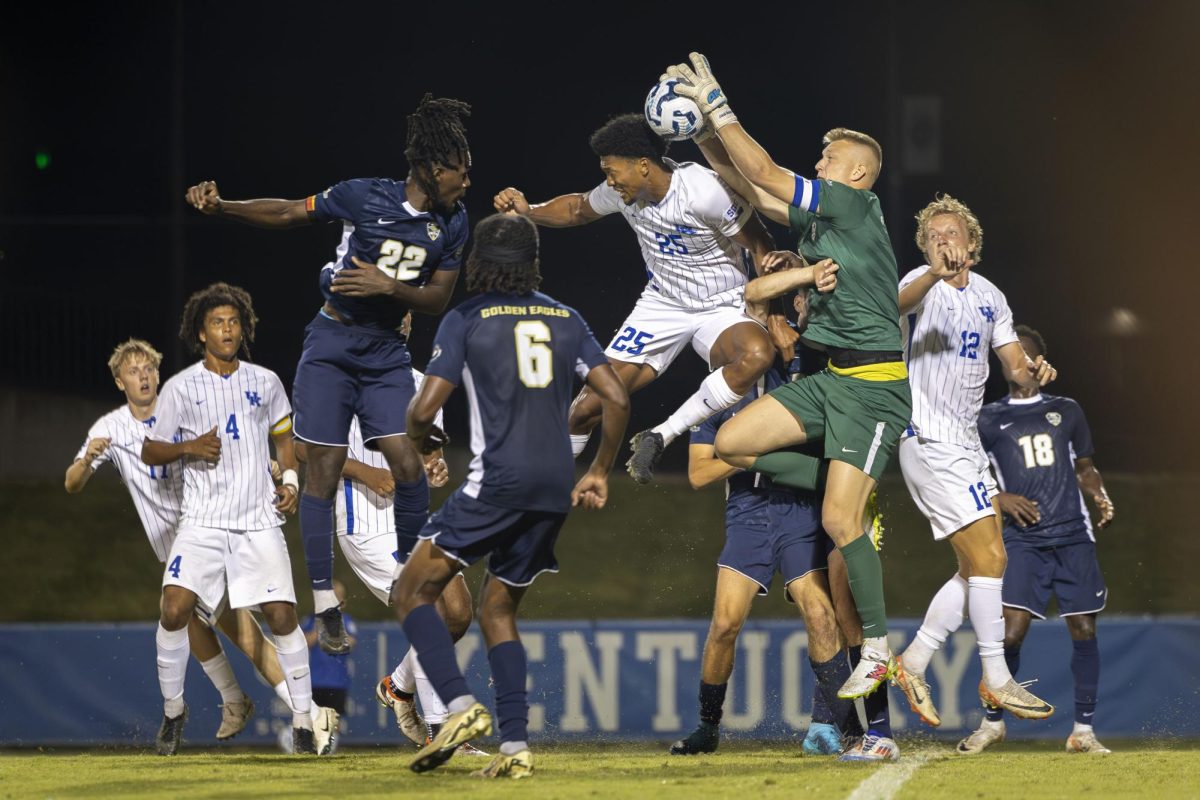Silence ensures voice will be heard
University of Kentucky student Shannon Frazer, pictured in the Kernel office on 10/14/09. Photo by Ed Matthews
January 12, 2011
Column by Shannon Frazer. E-mail [email protected].
Silence in journalism
As the new Opinions editor, I’d like to start off the semester by clarifying something that Cassidy Herrington mentioned in her farewell column in the last issue of the Kentucky Kernel of the fall 2010 semester.
She referred to me as “clever, yet silent.” It’s true: If you meet me in person, I’m often a person of few spoken words. My writing, however, is where you most easily may find my voice.
I can see how silence can be intimidating. Silence, after all, speaks volumes without actually communicating anything. It implies nothing and it says everything. Perhaps that is the reason I support and respect it so much.
Silence is loud. Silence is strong. Silence is powerful.
Journalists encounter silence all the time, though.
Whether their assignment is to interview the grieving widow whose husband was murdered or to cover a political rally where the silent atmosphere is excruciatingly tense between opposing candidates too stubborn to agree to disagree, yes, journalism needs silence.
Journalists who do their jobs most effectively pick up on that, and have learned to embrace the silence. They consider it with every article they write. Unfortunately, based on this quantifier, not too many of these kinds of journalists are out there.
Robin Leach, celebrity writer and best known for hosting “Lifestyles of the Rich and the Famous,” once said of interviewing, “When I interview people and they give me an immediate answer, they’re often not thinking. So I’m silent. I wait. Because they think they have to keep answering. And it’s the second train of thought that’s the better answer.”
I couldn’t have “said” it better myself. However, this isn’t just about the journalist restraining himself to allow the interviewee to speak coherently; the journalist can benefit from silence, as well.
American playwright and novelist Thornton Wilder said, “Those who are silent, self-effacing and attentive become the recipients of confidences.”
Wilder makes the point that the journalists who are not only attentive to their subjects, but also who remain silent to allow their subject to direct the conversation and gain the subject’s trust, those are the journalists who come away with the best stories.
No longer will “no comment” be synonymous with a short-sighted snub, or at least that is my hope as more awaken to this realization.
My introduction
As I’ve mentioned already, many acquaintances tell me the first thing they notice about me is that I’m quiet. Even people who have known me a long time say they find it ironic that I’m interested in a career field that requires conversation.
These acquaintances and others share the view of TIME Magazine’s Henry Anatole Grunwald, who said, “Journalism can never be silent: That is its greatest virtue and its greatest fault. It must speak, and speak immediately, while the echoes of wonder, the claims of triumph and the signs of horror are still in the air.”
Well, I think this view is ironic, considering journalism is a career that prides itself on making people talk and practicing the freedom of speech. Evidently never once have these so-called journalists understood that not always does what is said enhance what is known, nor does “speech” stop with verbal communication.
In the role of Opinions editor of the Kentucky Kernel this semester, I see it as my duty to express to you, the readers, in my written words what I may not have the capacity to speak, and to encourage you to do the same.
It’s like Jaroslav Seifert, the first Czech to win a Nobel Prize in literature, said, “If an ordinary person is silent, it may be a tactical maneuver. If a writer is silent, he is lying.”
I will strive to discuss topics that are of interest to readers and that convey my viewpoint honestly, openly and let those readers make of it what they will.
The Dalai Lama said it best with this quotation: “Sometimes one creates a dynamic impression by saying something, and sometimes one creates a significant impression by remaining silent.”
Perhaps the reason silence is so “dynamic” is because people often don’t know what to make of it. It’s unnatural to them. Especially in western culture, we praise whoever’s voice is loudest and feel the need to fill silent voids with conversation.
Author Henri Nouwen said, “For many of us, silence has become a threat. There was a time when silence was normal and a lot of noise disturbed us. But today, noise is normal fare, and silence — strange as it may seem — has become the disturbance.”
Now it’s your turn
If you’re one of those people who are put off by silence, I advise you to read my words and watch my actions. But don’t sit there and wait for me to talk.
Better yet, start your own conversation. Appreciate what your fellow students have to say, even if their ideas conflict with yours.
Elizabeth Cady Stanton, a leading patron for women’s suffrage, once said, “The moment we begin to fear the opinions of others and hesitate to tell the truth that is in us and from motives of policy are silent when we should speak, the divine floods of light and life no longer flow into our souls.”
Feel free to break the silence on your own accord. The Opinions page is always accepting submissions from the UK community on issues that affect the people within it. Let me be the journalist and you my interviewee. Say what’s on your mind.
Take a cue from Martin Luther King Jr., who said, “Our lives begin to end the day we become silent about things that matter.”
With that, I introduce you, my fellow Wildcats, to a semester of possibilities; possibilities to open up about those “things that matter.” Trust me — the silent, clever journalist — we will all be better for it.

